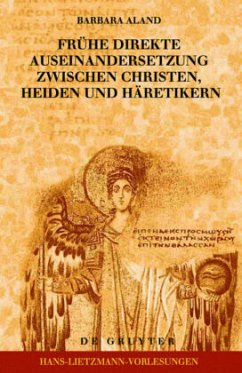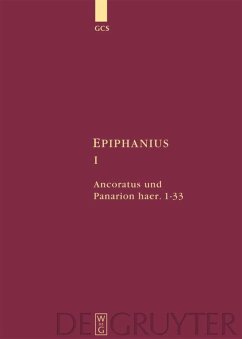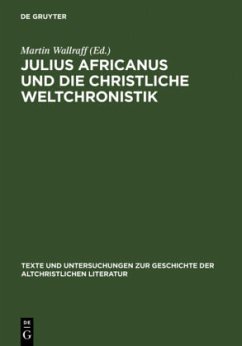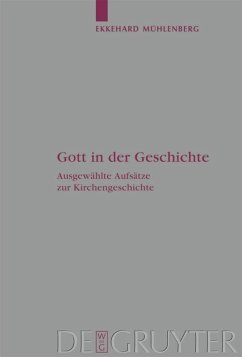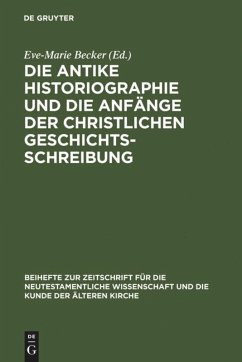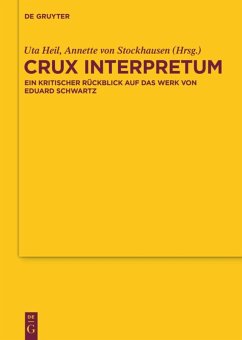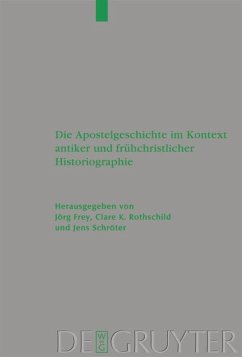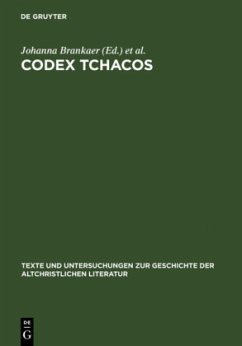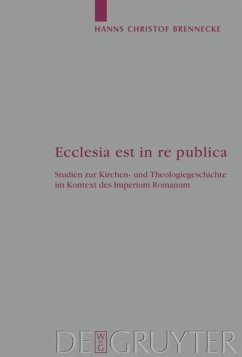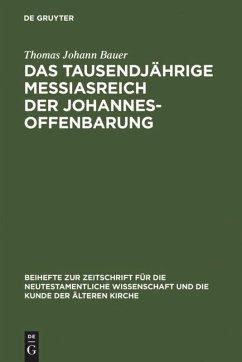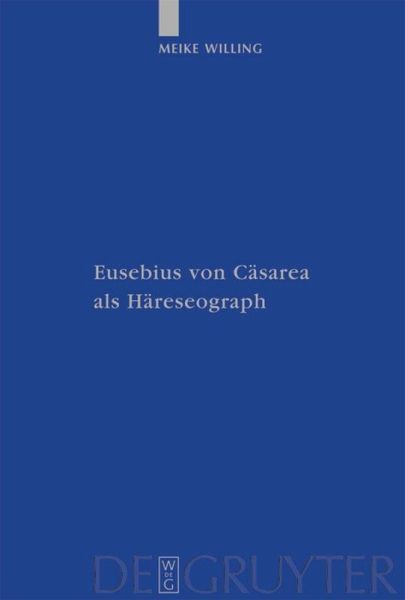
Eusebius von Cäsarea als Häreseograph

PAYBACK Punkte
0 °P sammeln!
In his History of the Church, Eusebius of Caesarea (â? approx. 340) presents the first comprehensive history of Christianity from its beginnings. In it, he devotes a great deal of attention to the subject of heresy. Which heresies did Eusebius know? How does he sketch them? Which ones does he suppress?
The study affords an insight into Eusebius' methodology and follows the development of the first centuries of literature on heresy. Eusebius' conception of heresy is presented systematically, and its special features are evaluated against the background of antique historiography.
The study affords an insight into Eusebius' methodology and follows the development of the first centuries of literature on heresy. Eusebius' conception of heresy is presented systematically, and its special features are evaluated against the background of antique historiography.
In seiner Kirchengeschichte vom Beginn des 4. Jh.s skizziert Eusebius von Cäsarea (ca. 260-ca. 340) erstmals umfassend die Geschichte der Christenheit von ihren Anfängen bis in seine eigene Zeit. Breiten Raum nimmt dabei die Darstellung des Kampfes gegen aufkeimende Häresien ein. Für sein Werk greift Eusebius auf älteste Quellen zurück, die uns heute z. T. nur noch aus seiner historia ecclesiastica bekannt sind.
Die vorliegende Untersuchung analysiert in ihrem ersten Teil minutiös die 26 Häresiedarstellungen in Eusebius' Kirchengeschichte. Großer Wert wird dabei auf die formalen und inhaltlichen Rezeptionskriterien Eusebius' sowie seinen redaktionellen Umgang mit Quellentexten und Traditionen gelegt. Es wird gezeigt, wie Eusebius seine Quellen auswählt, abgrenzt und für seine Konzeption nutzbar macht.
Der zweite Teil der Arbeit stellt die eusebianische Häreseographie systematisch dar und beschreibt deren Funktion innerhalb seiner Kirchengeschichtsschreibung. Vor dem Hintergrund der antiken Historiographie sowie der altkirchlichen Häreseologie werden die Besonderheiten der eusebianischen Vorgehensweise betrachtet und abschließend in ihrer Eigenständigkeit gewürdigt.
Die vorliegende Untersuchung analysiert in ihrem ersten Teil minutiös die 26 Häresiedarstellungen in Eusebius' Kirchengeschichte. Großer Wert wird dabei auf die formalen und inhaltlichen Rezeptionskriterien Eusebius' sowie seinen redaktionellen Umgang mit Quellentexten und Traditionen gelegt. Es wird gezeigt, wie Eusebius seine Quellen auswählt, abgrenzt und für seine Konzeption nutzbar macht.
Der zweite Teil der Arbeit stellt die eusebianische Häreseographie systematisch dar und beschreibt deren Funktion innerhalb seiner Kirchengeschichtsschreibung. Vor dem Hintergrund der antiken Historiographie sowie der altkirchlichen Häreseologie werden die Besonderheiten der eusebianischen Vorgehensweise betrachtet und abschließend in ihrer Eigenständigkeit gewürdigt.




